
That time of the year again, and you know how this works, the Best of 2022 starts with the annual list of the ten best songs of the year, the ones that resonated with me throughout the year the most — either because they rocked the hardest, or they hit me in the feels the most. The initial nominee pool this year was running close to twenty songs, and to be honest, whittling down this list was pretty hard (though not nearly as hard as the albums list is proving, good grief). If there’s a theme running through the picks below, I think it’s largely that of the unexpected, those little elements of surprise that characterized each entry for either how they impacted me, or what the band was doing differently in relation to their own sound, or simply being unique gems all their own. Stay tuned for the albums list coming soon, and the big guest laden roundtable MSRcast year end episode where we’ll hash out 2022 at length and make sure you didn’t miss anything worthwhile!
1. Xaon – “If I Had Wings” (from the album The Lethean)
On my first listen through Xaon’s The Lethean, I was already impressed by the time “If I Had Wings” appeared midway through the tracklist, but this was the singular moment that truly stunned me. A dramatic and articulate masterpiece of songwriting, one of those rare moments where a band’s grandiose artistic ambition is perfectly matched to their talent and ability to execute as musicians. I find this song so harmoniously perfect in it’s balance of shifting progressive metal elements, sweeping orchestral arrangements, and elegantly sculpted vocal melodies that it’s difficult to pinpoint a singular thing that I love about it more than any other. I will however point out vocalist Rob Carson’s sheer versatility, here encapsulated within this track’s five minutes and change run time, switching from an intensely manic melodeath scream, to a truly impressive clean voice reminiscent of a stronger, weightier Lars Nedland with a splash of Sebastian Levermann. And as you would expect from a track sitting atop this list, I loved the lyrical picture this track painted, particularly in that heartrending chorus, the song’s title acting as a poetic totem for yearning, anguish, and regret.
(Also appears on: The Metal Pigeon’s Best Albums of 2022)
2. Dawn of Destiny – “Little Flower” (from the album Of Silence)
From the ever reliable Dawn of Destiny came this gorgeous gem, a power ballad built on an 80’s Heart-esque moody piano melody and lush synth fill that cascaded into a glorious refrain. There are two stars here, first the impassioned vocals of Jeanette Scherff, who is still outrageously underrated even after debuting with the band over a decade ago. Second is the inspired songwriting of bassist Jens Faber who has such a unique and identifiable style unto his own (so much so that I recognized his trademark way with melodies on the recent Legions of the Night release before even realizing it was one of his side projects). The lyrics he’s penned for the chorus here are anguished yet poignant, that shade of bittersweet that recalls hints of Sentenced or Charon. This song stayed with me throughout the year, one of those pieces of music that I’d get a yearning to listen to at random times and couldn’t shake until I did.
(Also appears on: The Metal Pigeon’s Best Albums of 2022)
3. Avantasia – “Paper Plane” (from the album A Paranormal Evening with the Moonflower Society)
There are more obvious standouts on the recent Avantasia album, the two really excellent Floor Jansen cuts for example, or the epic Bob Catley duet on “The Moonflower Society” — and I’ve seen a lot of reviews dismiss “Paper Plane” outright for various reasons (reminding folks of “Lost In Space” might be at the top of that list). I’ll even admit that it took me quite a few listens to unlock the poignancy of this tucked away gem, but once I did, it became the muted, reserved highlight of an otherwise wildly outlandish and opulent album. Ronnie Atkins of Pretty Maids is the guest vocalist on this song, and I’m sure most of you know that Ronnie’s been facing stage four cancer (it returned after being treated a few years back). He’s been on tour with the band recently, and has been open about his diagnosis in the press, so he’s clearly living life to the fullest right now. But I suspect Tobias had all this in mind when penning these lyrics, because to give them to Ronnie just lends them this incredible emotional weight. The beautifully light on it’s feet melody that underscores his vocals just adds to the bittersweet resonance of a song that makes you feel grateful to be alive and sad all at once.
4. Månegarm – “En snara av guld” (from the album Ynglingaättens öde)
This beautiful violin led lament was that moment on this April release by Sweden’s folk metal disciples Månegarm where I stopped dead in my tracks and just listened. I still remember that moment, and since then both this album and in particular this song have been part of my metallic soundtrack to 2022. As a piece of songwriting, this song is beautifully constructed: the Scandinavian folk musicality that flows through it and creates imaginatively rich drama; and the powerful dynamics created with the careful placement of gritty, thick riffing and vocalist Erik Grawsiö’s charcoal coated vocals. Erik’s daughter Lea Grawsiö Lindström handles lead vocals in the verses, her plaintive tone a perfect foil for his blackened grim tones. The dynamic transition that hits at the 1:56 mark is simply one of the greatest musical moments from this year, just pure ear candy. For a song about the grizzly topic of forced marriage and murderous revenge, this was one of the prettiest tunes I’d hear all year, and an example of everything I love about folk metal at it’s best.
(Also appears on: The Metal Pigeon’s Best Albums of 2022)
5. Therion – “Cavern Cold As Ice” (from the album Leviathan II)
One of the fundamental aspects of Therion’s current Leviathan trilogy-in-progress project is that it’s a purposeful look back at different phases of the sounds regarded as “classic”. This second installment in the trilogy was focused on the band’s more softer, melancholic side that was a major component of their late 90s work, and though “Cavern Cold As Ice” is decidedly one of the more upbeat tunes on Leviathan II, it hit me the hardest and stayed with me the longest I suspect due to a heady dose of fervent nostalgia. There’s something truly charming and utterly endearing about the combination of jaunty orchestral rhythms and lithe but substantial vocals courtesy of Rosalía Sairem that really sent me back to that late 90s era. I can’t quite explain why, but I get such a retro gothic metal vibe from this song, reminding me of obscure stuff like Dreams of Sanity and Flowing Tears (anyone remember these bands?). This will likely be a pick that will leave some scratching their heads, and I can only justify it as my essential comfort listening, but this song makes me happy.
(Also appears on: The Metal Pigeon’s Best Albums of 2022)
6. Oceans of Slumber – “The Waters Rising” (from the album Starlight And Ash)
The smokey, streetlight reflecting opener to Oceans of Slumber’s truly inspired Starlight And Ash, “The Waters Rising” is perhaps one of the band’s most fully realized compositions to date. It’s built on the simplest of piano figures, a hypnotic synth based rhythmic motif, and pulled together by vocalist Cammie Gilbert with a jaw droppingly confident and engaging performance. Her voice is at times equal parts Natalie Merchant, Tracey Thorn, and Shirley Manson, run through a blues filter that speaks to the band’s southern geographical roots here in Houston. This is one of the more wildly aggressive cuts on an otherwise far more smoldering album, the heavy guitars towards the latter half of the song being one of the few moments where the band really let rip. It’s easily the band’s most memorable (and by that virtue, marketable) song, and they were wise to video it up.
(Also appears on: The Metal Pigeon’s Best Albums of 2022)
7. Planeswalker: Sozos Michael & Jason Ashcraft – “The Forever Serpent” (from the album Tales of Magic)
Plucked from the middle of one of the strongest power metal albums of the year, “The Forever Serpent” was one of the most enduring songs of the year, sticking with me all the way from it’s release way back in January. Guitarist Jason Ashcraft (he of Helion Prime notoriety) welds this thing together with some aggressive riffing, but he largely cedes the melodic territory to the tremendous vocals of Sozos Michael, who was easily the draw here for me. Grand, adventurous, rousing — all fitting adjectives for this slice of cliched power metal goodness packed with all the genre’s best tropes: the Johansson-esque keyboard solo dueling alongside Ashcraft’s leads, the dramatic mid-song bridge sequence with Sozos leading the way out of the darkness. Could anyone imagine a song about Magic: The Gathering being this exciting? I guess once Visigoth tackled D&D anything’s possible. Sozos is making waves now as the replacement for Thomas Winkler in Gloryhammer, and he’ll be far more well known for that than his brief stint with Helion Prime. But this brief detour of a project should receive more attention, because this was not the only awesome song to be heard on it.
8. Sabaton – “Christmas Truce” (from the album The War to End All Wars)
The remarkable thing about “Christmas Truce” off Sabaton’s WWI continuation album The War to End All Wars was that I caught sight of even their most cynical critics (shoutout to the r/PowerMetal gang) giving it props. It was, as they said, Sabaton’s (and thus by extension, songwriter Joakim Broden’s) most matured and accomplished songwriting to date, not only for the incorporation of elegant keys and a choir vocal, but for Broden’s blunt yet effective lyrical portrait of one of the more surreal stories to have emerged from wartime. For those of us familiar with Savatage’s Dead Winter Dead and Trans-Siberian Orchestra, you can’t help but hear a massive influence pulled from that collective musical wellspring. But that’s alright, because in an unexpected twist, the internet and YouTube reactor community has deemed this a modern day Christmas classic. And that’s a weird thing to say about a song based on WWI, but when you hear Tommy Johansson’s downright festive guitar solo, it starts to make sense. Some will scoff at this inclusion, but no song in metal from an album released this year made people tear up as much as this one did, and it takes a skilled songwriter to accomplish that.
9. Jani Liimatainen (ft. Tony Kakko) – “All Dreams Are Born To Die” (from the album My Father’s Son)
This collaboration between former bandmates hit like a bolt of lightning out of a clear blue sky, no warning, no prior indication that Jani and Tony were even on speaking terms these days (certainly there were no public signs of bad blood either, but the silence after Liimatainen left Sonata Arctica was deafening in it’s own way). It’s a slice of that classic early Sonata sound from those first three unimpeachable albums, a song from that era that was seemingly lost and found and injected with a little of that newfound Insomnium-esque Finnish melodeath riffage that is Liimatainen’s day job these days. The combination is pure magic, and it’s not just myself who felt this way — just check the comments on that YouTube video for proof, with one commenter stating it’s “The best Sonata Arctica song in two decades.”. I couldn’t agree more, and it’s regrettable that we only got this one song out of this reunion collab, but it could be just the nudge both guys needed to perhaps collaborate together on a full length project again. Tony needs a writer like Jani, and Jani deserves a vocalist of Tony’s caliber (perhaps on a future Cain’s Offering, or hell, let’s just say it outright, Jani rejoining Sonata at some point?). For now, “All Dreams Are Born To Die” was one of the most joyful and incredible songs of 2022, and that’s enough.
10. Sumerlands – “Edge of the Knife” (from the album Dreamkiller)
This electric slice of classic 80s metal reimagined is one of the sharpest shivs off Dreamkiller, an album that can be described as somewhat of a rebirth for Sumerlands. I had gotten to see them live back in April at the Hells Heroes fest here in Houston and they delivered one of the most intense and engaging performances of the entire weekend. It was a great showcase for new vocalist Brendan Radigan, whose channeling of Randy Rhoads-era Ozzy with splashes of Klaus Meine and Don Dokken gave new attitude to the older songs from the debut album, and of course, have shaped the sound here on the new one. Across the rest of the album, there’s subtle complexity to the songwriting that is a direct conduit from the debut, but on “Edge of the Knife”, its all about no frills, straight to the heart rockin’. John Powers and Arthur Rizk spit out Priest-ian riffs and hit that gear shift into Schenker-Jabs Scorpions territory when the chorus kicks in. Probably the song I pulled up the most in my car when I needed to just rock the hell out these past few months.


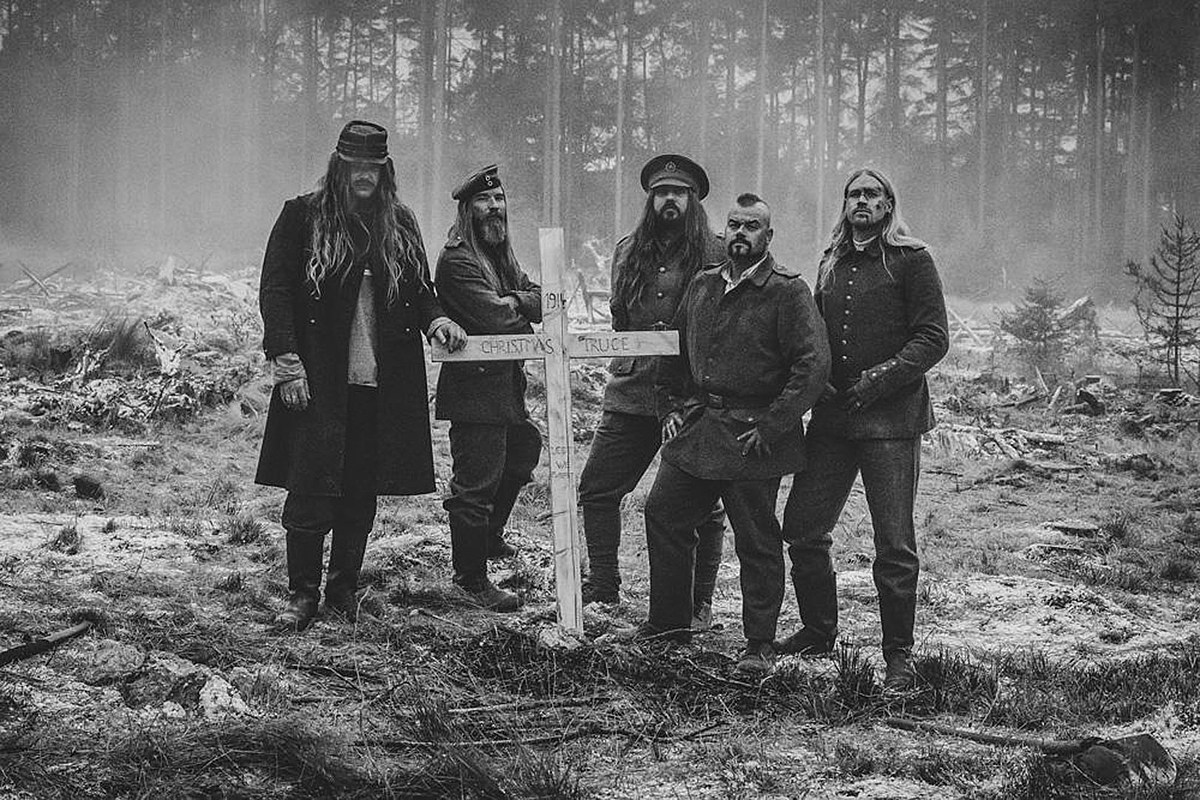





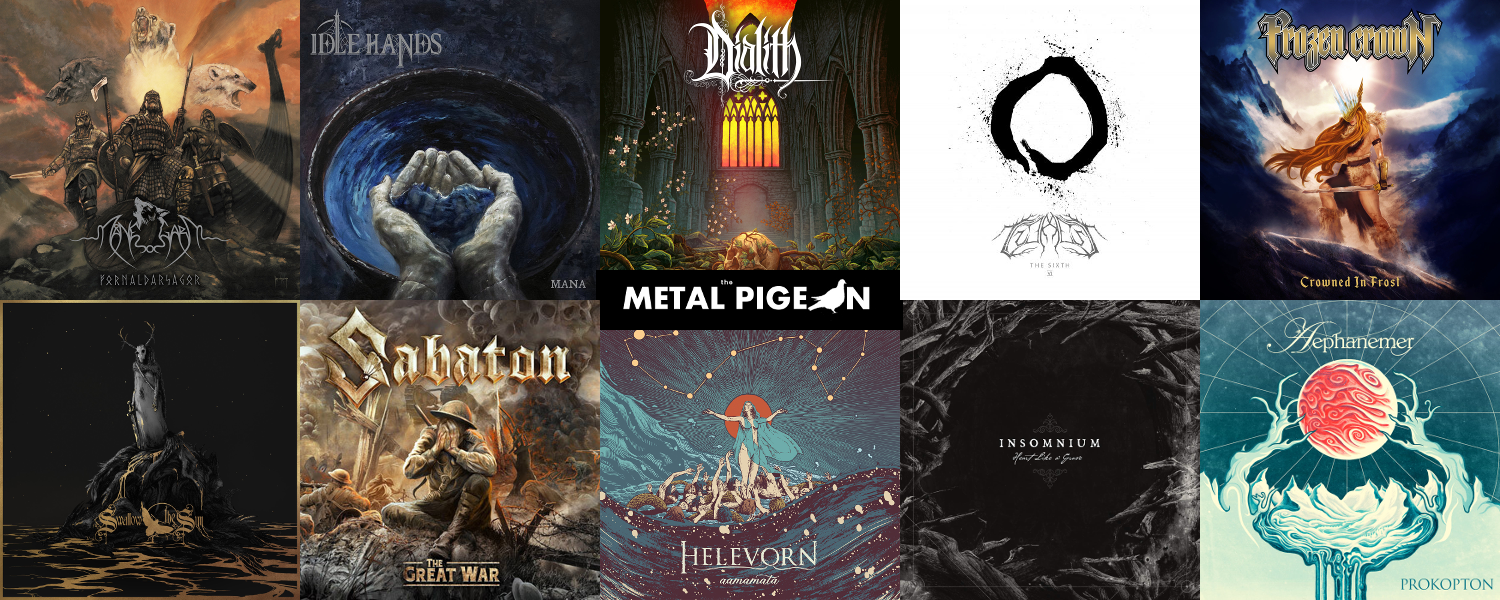













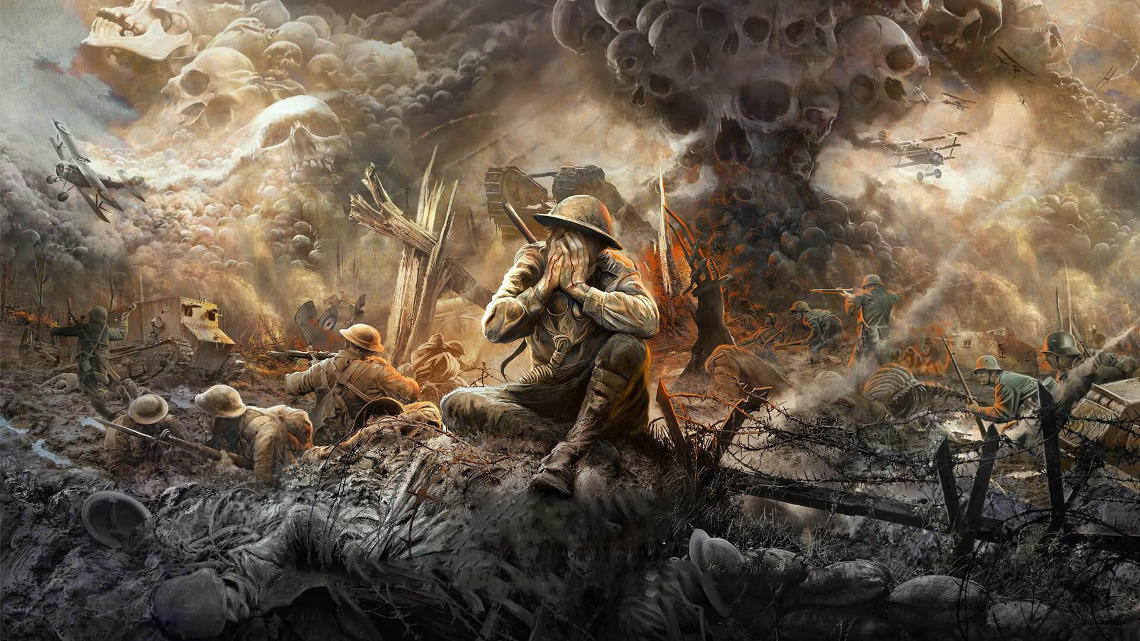

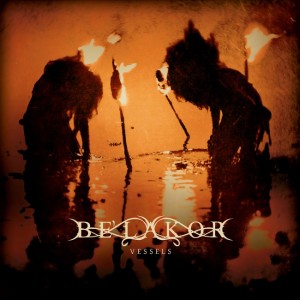



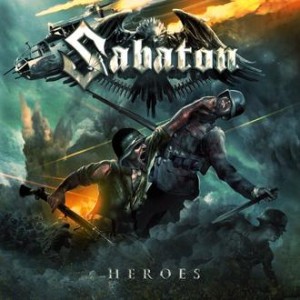 There’s so much to discuss in regards to Sabaton’s newest album, Heroes, a ten track paean to specific acts of heroism in wartime, and a strong contender to be the band’s best album to date. Let’s just get that out of the way first: Heroes is a great Sabaton record, not perfect… but really, really great. I usually avoid disclosing my overall consensus on an album until midway through a review, because after all, I’d like you all to keep reading throughout. Yet the story of this record is worth discussing in depth even though you know where my opinion stands. Its simultaneously a story of the self-driven perseverance of two friends and band mates and their vindication in the wake of what could have been crippling circumstances; as well as a collage of moments where humanity triumphed over the waste and destruction of warfare. Regarding the latter, this is a turning point for Sabaton, whose previous albums were largely made up of metallic anthems either depicting the intensity of war and its participants (for example, “Ghost Division”, “Into the Fire” or “Primo Victoria”), or paying homage to war heroes exclusively (“White Death”). There’s a bit of that on Heroes as well (certainly the cover art reinforces that), but surprisingly enough the album largely consists of songs honoring those moments when non-violence prevailed over all.
There’s so much to discuss in regards to Sabaton’s newest album, Heroes, a ten track paean to specific acts of heroism in wartime, and a strong contender to be the band’s best album to date. Let’s just get that out of the way first: Heroes is a great Sabaton record, not perfect… but really, really great. I usually avoid disclosing my overall consensus on an album until midway through a review, because after all, I’d like you all to keep reading throughout. Yet the story of this record is worth discussing in depth even though you know where my opinion stands. Its simultaneously a story of the self-driven perseverance of two friends and band mates and their vindication in the wake of what could have been crippling circumstances; as well as a collage of moments where humanity triumphed over the waste and destruction of warfare. Regarding the latter, this is a turning point for Sabaton, whose previous albums were largely made up of metallic anthems either depicting the intensity of war and its participants (for example, “Ghost Division”, “Into the Fire” or “Primo Victoria”), or paying homage to war heroes exclusively (“White Death”). There’s a bit of that on Heroes as well (certainly the cover art reinforces that), but surprisingly enough the album largely consists of songs honoring those moments when non-violence prevailed over all. It was an inconspicuous debut —- though an auspicious one. The tour plowed on, and when I caught the band almost a year later back in Houston, they were firing on all cylinders, the new guys even equaling Broden in their stage performances. I’ve seen them a few times since then, most recently the other week opening for Iced Earth, this time with another new drummer Hannes van Dahl as replacement for Bäck who had to leave for paternity reasons —- and my impressions were further reinforced. Having seen both eras of their lineups, I feel that the current incarnation is the definitive lineup, and that’s not to discredit former band members, but the new guys just seem to “get” what Broden and Sundstrom have in mind when it comes to their live performance. The real question however that lingered throughout was just how this massive lineup change would affect a new recording? In terms of songwriting, there didn’t seem a reason to be concerned since Broden has always served as Sabaton’s musical scribe, but he composes on keyboards and leaves the guitars to his bandmates —- how would the new guys mesh with what he gave them? Exceedingly well as it turns out, and I gather this not only from my takeaway from listening to the album itself, but from comments made by Broden and Sundstrom themselves, who in a
It was an inconspicuous debut —- though an auspicious one. The tour plowed on, and when I caught the band almost a year later back in Houston, they were firing on all cylinders, the new guys even equaling Broden in their stage performances. I’ve seen them a few times since then, most recently the other week opening for Iced Earth, this time with another new drummer Hannes van Dahl as replacement for Bäck who had to leave for paternity reasons —- and my impressions were further reinforced. Having seen both eras of their lineups, I feel that the current incarnation is the definitive lineup, and that’s not to discredit former band members, but the new guys just seem to “get” what Broden and Sundstrom have in mind when it comes to their live performance. The real question however that lingered throughout was just how this massive lineup change would affect a new recording? In terms of songwriting, there didn’t seem a reason to be concerned since Broden has always served as Sabaton’s musical scribe, but he composes on keyboards and leaves the guitars to his bandmates —- how would the new guys mesh with what he gave them? Exceedingly well as it turns out, and I gather this not only from my takeaway from listening to the album itself, but from comments made by Broden and Sundstrom themselves, who in a As far as what makes it great, listen first to five absolutely excellent standout tracks in “Night Witches”, “No Bullets Fly”, “The Ballad of Bull”, “Resist and Bite”, and album closer “Hearts of Iron”. In typical Sabaton fashion, what makes these songs so great is not only their precision honed array of hooks and musical ear candy, but the interesting subject matter and Broden’s skilled ability at lyric writing. One of the most gripping back stories is found on “No Bullets Fly”, honoring an incident in which a crippled American B-17 was escorted back to friendly territory by a German ace fighter pilot named Franz Stigler who was one confirmed kill away from qualifying for the Knights Cross. He said that he maneuvered alongside the B-17 and could actually see through the damaged air frame and look directly at the faces of its injured pilot, Charles Brown and remaining crew. He made a choice that could’ve gotten him executed had his superiors found out —- he escorted the B-17 back to the North Sea, his presence preventing German anti-aircraft batteries from firing upon the American craft. Upon reaching the sea Stigler saluted the American crew and turned back. Forty-seven years later, the two pilots would finally meet and became good friends. As a kid I grew up wanting to be nothing more than a fighter pilot, and I loved reading about the history of aerial combat —- and I’m torn between being annoyed with myself for not hearing of this particular story earlier, but very gratified that I got to hear about it through Sabaton’s monstrously epic, adrenaline pounding celebration of human decency. It sounds like an odd juxtaposition because it is: Group shouted vocals yelling “Killing Machine!… B-17!” during the chorus envelope the humanitarian sentiments of “Honor in the sky!… Flying Home!… Said goodbye to the Cross he deserved!” Its quickly become one of my favorite Sabaton songs.
As far as what makes it great, listen first to five absolutely excellent standout tracks in “Night Witches”, “No Bullets Fly”, “The Ballad of Bull”, “Resist and Bite”, and album closer “Hearts of Iron”. In typical Sabaton fashion, what makes these songs so great is not only their precision honed array of hooks and musical ear candy, but the interesting subject matter and Broden’s skilled ability at lyric writing. One of the most gripping back stories is found on “No Bullets Fly”, honoring an incident in which a crippled American B-17 was escorted back to friendly territory by a German ace fighter pilot named Franz Stigler who was one confirmed kill away from qualifying for the Knights Cross. He said that he maneuvered alongside the B-17 and could actually see through the damaged air frame and look directly at the faces of its injured pilot, Charles Brown and remaining crew. He made a choice that could’ve gotten him executed had his superiors found out —- he escorted the B-17 back to the North Sea, his presence preventing German anti-aircraft batteries from firing upon the American craft. Upon reaching the sea Stigler saluted the American crew and turned back. Forty-seven years later, the two pilots would finally meet and became good friends. As a kid I grew up wanting to be nothing more than a fighter pilot, and I loved reading about the history of aerial combat —- and I’m torn between being annoyed with myself for not hearing of this particular story earlier, but very gratified that I got to hear about it through Sabaton’s monstrously epic, adrenaline pounding celebration of human decency. It sounds like an odd juxtaposition because it is: Group shouted vocals yelling “Killing Machine!… B-17!” during the chorus envelope the humanitarian sentiments of “Honor in the sky!… Flying Home!… Said goodbye to the Cross he deserved!” Its quickly become one of my favorite Sabaton songs. I’d be remiss not to discuss in greater detail my love of the songs “The Ballad of Bull” and “Hearts of Iron”, two songs about non-violent humanitarian action in the middle of utter chaos. Again its refreshing to hear Sabaton’s scope increasing, their views on the concepts of heroism being greater than just focusing on combative actions. Broden’s lyrics are often startlingly direct, and they certainly are here, but I feel that it works better for the song —- what could he possibly couch in a metaphor? Some may be put off by the former’s piano drenched balladry, in fact a fellow metal critic/radio host friend of mine stated that he thought the piano on it was too “processional”, or too formal for his preferences. I can see where he’s coming from, but for me, that is precisely why I love it so much. I love that the heavy emphasis on naked piano seems to evoke a musical pastiche of the 1940s (or at least my impression of it), and its heavily pronounced major keys seem fitting to match such a near mythical tale of gallant individual heroism. Maybe its also that I simply love piano as an instrument, and amidst an album full of heavy, breakneck guitars, its arrival is a welcome contrast.
I’d be remiss not to discuss in greater detail my love of the songs “The Ballad of Bull” and “Hearts of Iron”, two songs about non-violent humanitarian action in the middle of utter chaos. Again its refreshing to hear Sabaton’s scope increasing, their views on the concepts of heroism being greater than just focusing on combative actions. Broden’s lyrics are often startlingly direct, and they certainly are here, but I feel that it works better for the song —- what could he possibly couch in a metaphor? Some may be put off by the former’s piano drenched balladry, in fact a fellow metal critic/radio host friend of mine stated that he thought the piano on it was too “processional”, or too formal for his preferences. I can see where he’s coming from, but for me, that is precisely why I love it so much. I love that the heavy emphasis on naked piano seems to evoke a musical pastiche of the 1940s (or at least my impression of it), and its heavily pronounced major keys seem fitting to match such a near mythical tale of gallant individual heroism. Maybe its also that I simply love piano as an instrument, and amidst an album full of heavy, breakneck guitars, its arrival is a welcome contrast. Of course, that’s not to suggest that the band have entirely left tradition behind, as “Resist and Bite” is one of the band’s best songs to date and falls in line behind old classics like “40:1” and “Uprising” as us against them celebrations of sacrifice (though in this case it’s about the Belgian infantry resistance to the Nazis). I was driving along the spaghetti bowl of Houston freeways listening to the album this past weekend, and when this song came on I blew past the speed limit and barely saw a highway patrol car on the shoulder just in time —- a very close call! Its got that kind of adrenaline surging, pulse poundingly dramatic (and ultra-catchy) chorus that defines epic and makes you look like a maniac to other passing vehicles. The guitar solos in this track are worth mentioning —- on the entire album in fact, Englund and Rorland trade back and forth wildly melodic, furious soloing that is always complementary to the primary melody at work. Similar in old school theme is “Soldier of 3 Armies”, about Lauri Törni who as the title suggests fought for Finland during the Winter War, Germany in World War II against the Soviets, and the United States (in Vietnam as a Green Beret no less… and man, did this guy hate the Soviets or what?). Its a strong track that is a spiritual cousin to “White Death” from Coat of Arms.
Of course, that’s not to suggest that the band have entirely left tradition behind, as “Resist and Bite” is one of the band’s best songs to date and falls in line behind old classics like “40:1” and “Uprising” as us against them celebrations of sacrifice (though in this case it’s about the Belgian infantry resistance to the Nazis). I was driving along the spaghetti bowl of Houston freeways listening to the album this past weekend, and when this song came on I blew past the speed limit and barely saw a highway patrol car on the shoulder just in time —- a very close call! Its got that kind of adrenaline surging, pulse poundingly dramatic (and ultra-catchy) chorus that defines epic and makes you look like a maniac to other passing vehicles. The guitar solos in this track are worth mentioning —- on the entire album in fact, Englund and Rorland trade back and forth wildly melodic, furious soloing that is always complementary to the primary melody at work. Similar in old school theme is “Soldier of 3 Armies”, about Lauri Törni who as the title suggests fought for Finland during the Winter War, Germany in World War II against the Soviets, and the United States (in Vietnam as a Green Beret no less… and man, did this guy hate the Soviets or what?). Its a strong track that is a spiritual cousin to “White Death” from Coat of Arms.
 Sabaton – Carolus Rex:
Sabaton – Carolus Rex: Sonata Arctica – Stones Grow Her Name:
Sonata Arctica – Stones Grow Her Name: Kreator – Phantom Antichrist:
Kreator – Phantom Antichrist: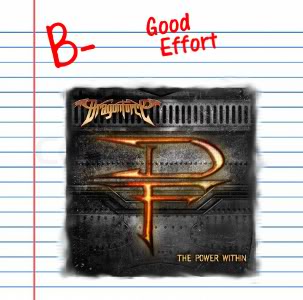 Dragonforce – The Power Within:
Dragonforce – The Power Within: Grand Magus – The Hunt:
Grand Magus – The Hunt: Burzum – Umskiptar:
Burzum – Umskiptar:
